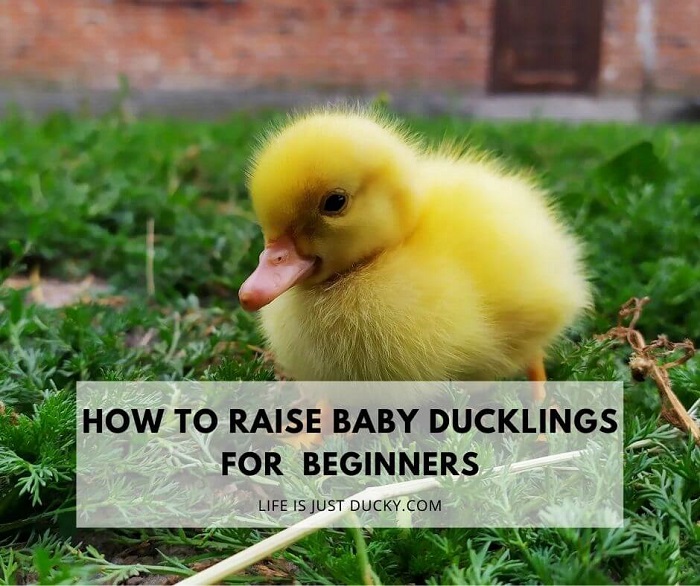
Caring for Baby Mallard Ducks: A Comprehensive Guide
Baby mallard ducks, also known as ducklings, are adorable and helpless creatures that require specialized care to thrive. Whether you’ve encountered orphaned ducklings or simply want to provide a nurturing environment for your own, this comprehensive guide will equip you with the knowledge and techniques to ensure their well-being.
Understanding Duckling Development
Ducklings hatch from eggs after an incubation period of approximately 28 days. They are born with a downy coat and are unable to fly or swim. Within a few hours of hatching, they begin to follow their mother and learn essential survival skills.
Creating a Safe and Suitable Environment
1. Enclosure:
- Provide a spacious enclosure that allows the ducklings to move around freely.
- Line the enclosure with soft bedding, such as straw or hay, to provide warmth and comfort.
- Ensure the enclosure has adequate ventilation to prevent respiratory problems.
2. Heat Source:
- Ducklings require a constant temperature of around 95°F (35°C) for the first week of life.
- Use a heat lamp or a brooder box with a heat source to maintain the desired temperature.
- Monitor the temperature regularly using a thermometer.
3. Water:
- Provide a shallow dish of clean, fresh water at all times.
- Change the water daily to prevent contamination.
- Ducklings will instinctively dip their heads in water to drink.
4. Food:
- Feed ducklings a high-quality commercial duck starter feed.
- Start with small amounts and gradually increase as they grow.
- Feed ducklings 3-4 times a day.
- Avoid feeding them bread or other human foods, as these can be harmful.
5. Hygiene:
- Keep the enclosure and bedding clean to prevent disease.
- Change bedding regularly and remove any soiled material.
- Monitor the ducklings for any signs of illness, such as lethargy, discharge from the eyes or nose, or difficulty breathing.
Hand-Feeding Orphaned Ducklings
If you encounter orphaned ducklings, it’s crucial to provide immediate care.
1. Warming:
- Gently wrap the ducklings in a soft towel and place them in a warm, dark place.
- Use a heating pad or hot water bottle to provide additional warmth.
2. Feeding:
- Use a syringe or dropper to feed the ducklings a commercial duck starter formula.
- Hold the duckling upright and gently insert the syringe or dropper into its mouth.
- Feed the duckling small amounts of formula every 2-3 hours.
3. Hydration:
- If the duckling is dehydrated, offer it a few drops of water using a syringe or dropper.
- Do not force the duckling to drink.
4. Stimulation:
- Gently massage the duckling’s abdomen to stimulate urination and defecation.
- Use a damp cloth to clean the duckling’s vent area.
Introducing Ducklings to Water
Once the ducklings are a few days old, they can be introduced to water.
1. Gradual Introduction:
- Place the ducklings in a shallow dish of water and let them explore at their own pace.
- Do not force them to swim.
2. Supervision:
- Supervise the ducklings closely when they are in water.
- Ensure the water is shallow enough that they can easily stand up.
3. Drying:
- After the ducklings have finished swimming, gently towel them dry to prevent hypothermia.
Releasing Ducklings into the Wild
When the ducklings are fully feathered and able to fly, they can be released into the wild.
1. Gradual Transition:
- Gradually reduce the amount of time the ducklings spend in the enclosure.
- Allow them to explore the outside environment under your supervision.
2. Release Site:
- Choose a release site with a natural water source, such as a pond or lake.
- Ensure the area is safe from predators and has an abundance of food.
3. Monitoring:
- Monitor the ducklings after release to ensure they are adapting well to their new environment.
- Provide supplemental food and water if necessary.
Additional Tips
- Handle ducklings gently and avoid excessive noise or stress.
- Do not overcrowd the enclosure.
- Provide enrichment activities, such as toys or shallow water for splashing.
- Seek veterinary care promptly if you notice any signs of illness or injury.
- Remember that ducklings are wild animals and should not be kept as pets.
Conclusion
Caring for baby mallard ducks requires patience, dedication, and a deep understanding of their unique needs. By following the guidelines outlined in this comprehensive guide, you can provide these vulnerable creatures with the best possible care and ensure their successful transition into the wild. Remember, the well-being of these adorable ducklings depends on our responsible actions.
